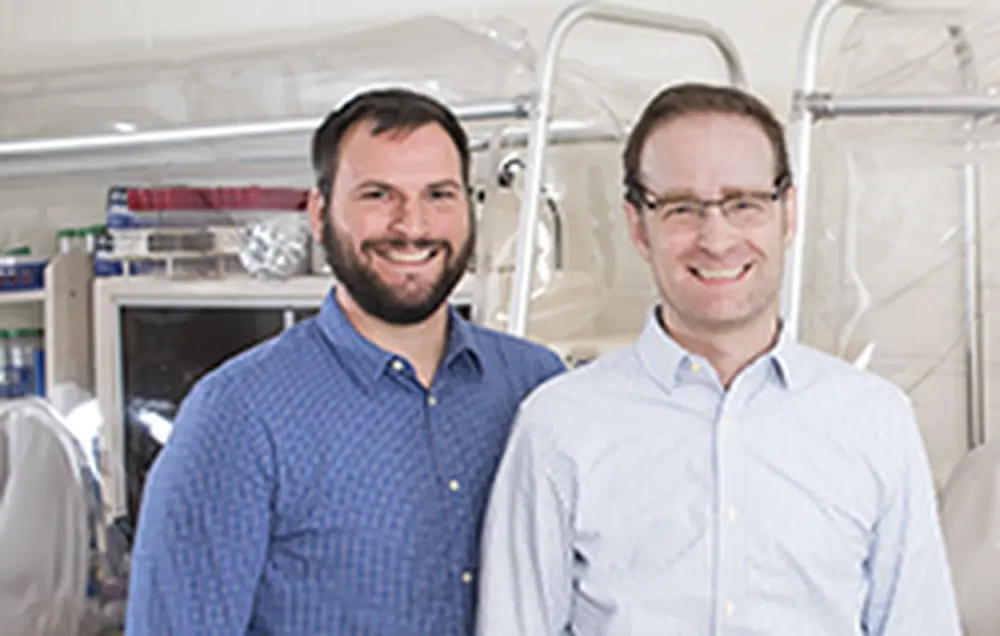
A new study, reported in the journal mSystems, contributes to understanding how vitamins may be used to modify or influence the microbial composition of the human gut.
The study identified the diverse strategies employed by Bacteroidetes, a widespread and important group of microbes that also inhabit the human gut, to acquire thiamine. All microbes require thiamine, and Bacteroidetes can make their own, take it in from the environment or both. Experiments by Zachary Costliow, a graduate student in the laboratory of microbiology professor Patrick Degnan, revealed that both thiamine biosynthesis and transport are crucial for the surivial of B. thetaiotaomicron in a competitive environment.
Humans require thiamine as well. “Thiamine, or Vitamin B1, is found in whole grains, meat, and fish, and is essential for metabolizing carbohydrates and maintaining the health of the central nervous system,” Costliow said. “Thiamine deficiencies can lead to serious problems with vision, stability, and memory, among other effects.”
In addition to dietary sources, there is evidence that thiamine availability is modulated by or acquired from the dense and diverse microbial communities present in the gastrointestinal tract. As such, the new study contributes to understanding how microbial mechanisms influence the availability of this essential vitamin, the researchers said.
Degnan, the principal investigator on the research, said that diseases such as diabetes, Alzheimer’s, obesity, and even cancer are associated with radical changes in the composition of the gut’s microbes.
“Thiamine influences how the gut’s microbial community is structured, and that means thiamine may be an excellent target for developing treatments for these diseases,” he said.
The Degnan lab’s research is funded by an investigator award from the Roy J. Carver Charitable Trust to PHD (#15-4501), and School of MCB at the University of Illinois at Urbana-Champaign.